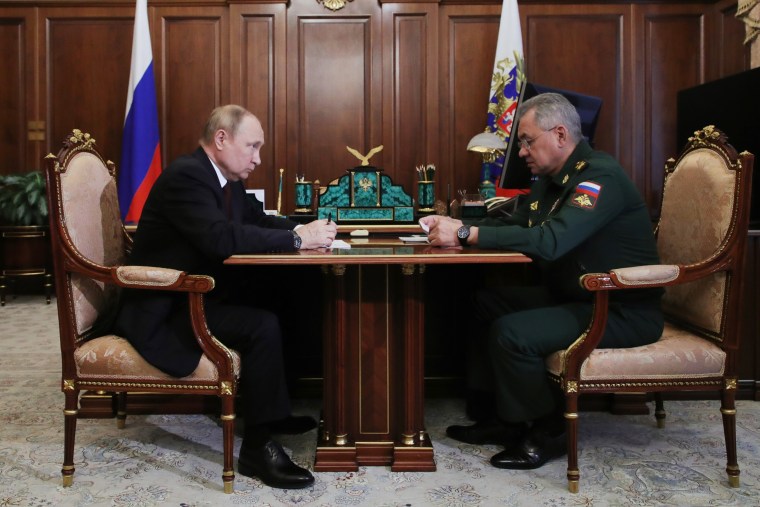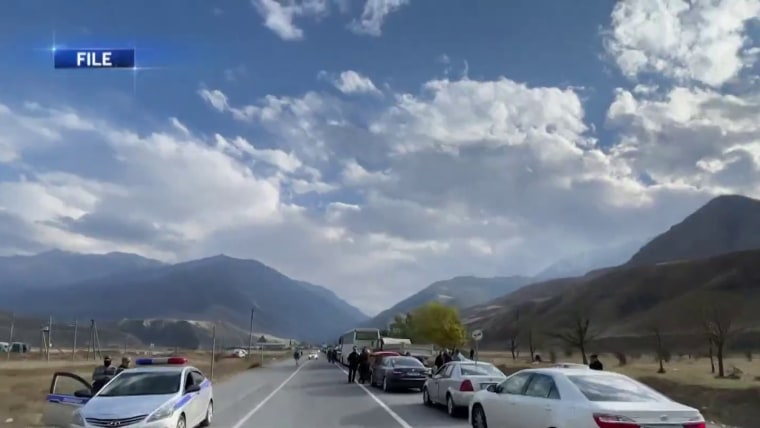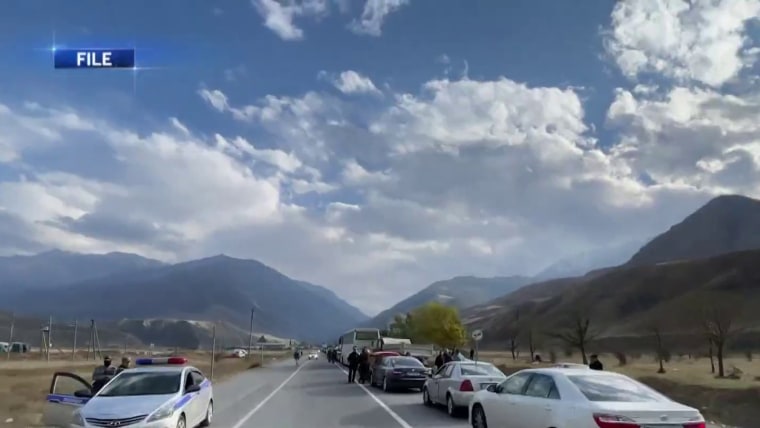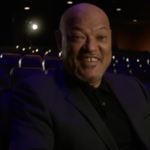Who’s to blame for Russia’s failures in Ukraine?
After weeks of battlefield setbacks, criticism of Moscow’s military leadership has burst into the open — heightening the sense of domestic discontent and posing a rare challenge to the Kremlin.
A growing chorus of voices across state media has expressed dismay at the war’s lack of progress in recent days, while nationalist figures have raised the pressure in the wake of breakthroughs by Kyiv’s forces in the south and east. The search for a scapegoat appears to have settled on Defense Minister Sergei Shoigu, a close associate of the man who unilaterally launched the invasion: Russian President Vladimir Putin.
No one has yet dared to point the finger at Putin himself, but there have been growing stabs at his defense ministry and the longtime ally who heads it, putting pressure on the Russian leader to make a decisive change before it is too late to turn things around on the battlefield.
“Shoigu’s job now is to be Putin’s bulletproof vest,” Mark Galeotti, who heads the Russia-focused consultancy Mayak Intelligence, told NBC News. “At the moment, his main value is exactly that he soaks up the criticism, which otherwise would inevitably be heading Putin’s way.”
Addressing Russia’s retreat in the crucial southern region of Kherson on Thursday, a deputy head of the Russian-installed regional administration, in an astonishing public tirade, scorned Moscow’s “talentless military leaders.”
“Many people say that if they were the minister of defense, who allowed things to reach this state of affairs, they would shoot themselves,” Kirill Stremousov said in a video posted on the Telegram messaging app, without mentioning Shoigu by name.
One of Russia’s chief propagandists, Vladimir Solovyev — who has been staunchly pro-war but has recently acknowledged Russia’s military struggles and warned his audience not to expect “good news” for a while — also unleashed fury at Shoigu on Thursday, without directly naming him.
He suggested “a transfer to another job” could be one way to remedy the defense ministry’s failures.
Appointed defense minister in 2012, Shoigu, 67, had served as the minister of emergency situations, often dispatched to deal with natural disasters and security emergencies, earning him public approval.
While not a career soldier, he is one of Putin’s closest allies and has a reputation as the Russian leader’s loyal “adjutant.” He has often been pictured alongside the Russian president on hunting and fishing trips to Siberia, showcasing the closeness of their friendship.
But he has kept a low profile since Putin invaded Ukraine, largely staying out of the public eye and prompting rumors of a fallout between the two.

As Russian forces plunge farther into retreat in Ukraine, Shoigu’s leadership and ministry are being increasingly criticized for downplaying the situation on the front lines.
“It’s time to stop lying,” the chair of the Russian parliament’s defense committee, Andrey Kartapolov, said this week, accusing the ministry of covering up bad news from Ukraine.
The ministry has also been in the crosshairs for how it has handled Putin’s “partial mobilization,” with widespread reports that those who are not fit for service are being called up and newly enlisted soldiers are facing inadequate conditions, training and equipment.
Still, such stinging public rebukes of the country’s leadership are extremely rare in Putin’s Russia, where any dissent, especially against those aligned with the Kremlin, is prohibited.
There are signs that at least some of the criticism may boil down to tensions within Russia’s ruling elite.





